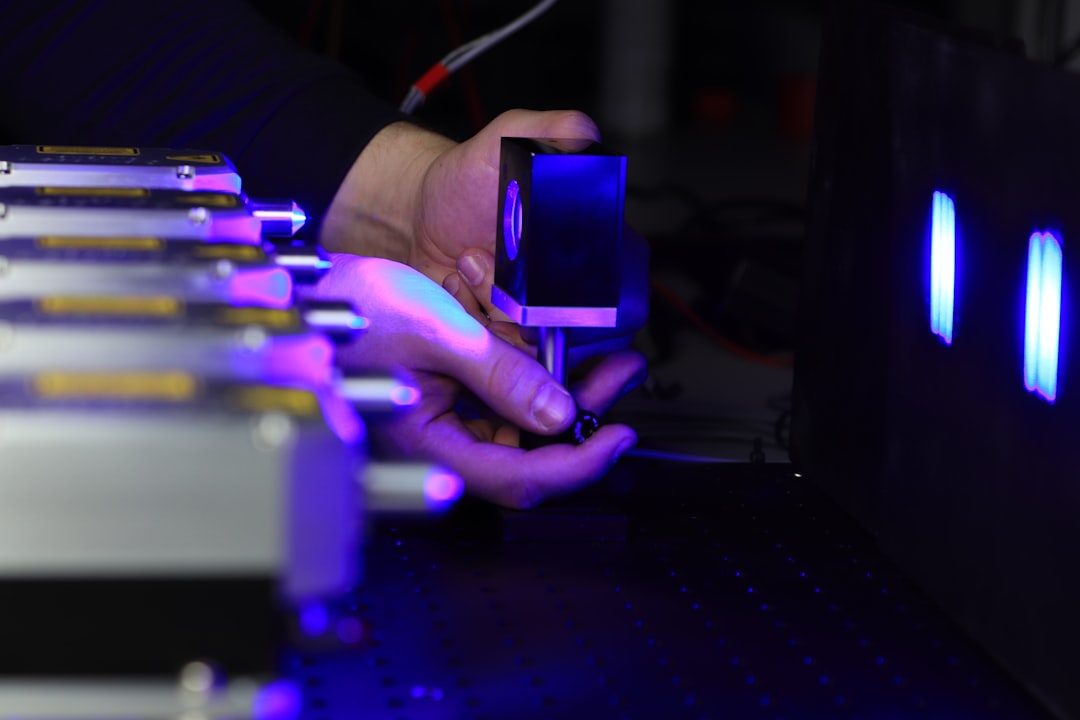Laser hair removal is a popular cosmetic procedure that uses concentrated beams of light to remove unwanted hair. When it comes to black skin, there are some unique considerations to keep in mind. The melanin in darker skin tones can make traditional laser hair removal treatments less effective and potentially more risky. This is because the laser targets the pigment in the hair follicle, and if the surrounding skin has a high concentration of melanin, it can absorb the laser energy and cause damage.
It’s important to understand that not all lasers are suitable for use on black skin. Traditional lasers, such as those with Alexandrite or Diode technology, may not be the best choice for individuals with darker skin tones. These lasers can cause burns, hyperpigmentation, or hypopigmentation in black skin. However, there are specific types of lasers, such as Nd:YAG and Diode 810nm, that are safer and more effective for laser hair removal on black skin. These lasers have longer wavelengths that can bypass the melanin in the skin and target the hair follicle more precisely.
When considering laser hair removal for black skin, it’s essential to seek out a provider who has experience working with darker skin tones and uses the appropriate technology. By understanding the unique challenges and requirements of laser hair removal for black skin, individuals can make informed decisions about their treatment options.
Key Takeaways
- Laser hair removal is safe and effective for black skin when performed by a qualified provider using the right technology
- Choosing the right laser technology, such as Nd:YAG, is crucial for successful hair removal on black skin
- Preparing for laser hair removal on black skin involves avoiding sun exposure and certain skincare products
- Potential risks and side effects of laser hair removal on black skin include hyperpigmentation and burns if not done properly
- Aftercare for laser hair removal on black skin includes moisturizing and protecting the skin from sun exposure
The Importance of Choosing the Right Laser Technology
Choosing the right laser technology is crucial when it comes to laser hair removal for black skin. As mentioned earlier, traditional lasers may not be suitable for individuals with darker skin tones due to the risk of adverse effects such as burns or changes in pigmentation. This is why it’s essential to opt for lasers with longer wavelengths, such as Nd:YAG or Diode 810nm, which are safer and more effective for black skin.
Nd:YAG lasers are particularly well-suited for laser hair removal on black skin because they have a longer wavelength that can penetrate deeper into the skin without being absorbed by the melanin. This means that the laser can target the hair follicle more effectively while minimizing the risk of damage to the surrounding skin. Similarly, Diode 810nm lasers are also a good choice for individuals with darker skin tones as they can safely and efficiently remove unwanted hair without causing harm to the skin.
By choosing the right laser technology, individuals with black skin can undergo laser hair removal with confidence, knowing that they are using a safe and effective treatment option that is specifically designed for their unique needs.
Preparing for Laser Hair Removal on Black Skin
Preparing for laser hair removal on black skin involves several important steps to ensure a safe and successful treatment. Before the procedure, it’s crucial to find a qualified provider who has experience working with darker skin tones and uses the appropriate laser technology. This will help minimize the risk of adverse effects and ensure that the treatment is tailored to the individual’s specific needs.
In addition to finding a qualified provider, it’s essential to avoid sun exposure and tanning beds before undergoing laser hair removal. Sun exposure can increase the risk of complications and adverse effects, especially for individuals with darker skin tones. It’s recommended to use sunscreen and protective clothing to shield the skin from UV rays in the weeks leading up to the treatment.
Furthermore, individuals preparing for laser hair removal should refrain from plucking, waxing, or using depilatory creams in the treatment area. These methods can disrupt the hair follicles and interfere with the effectiveness of the laser treatment. Instead, it’s best to shave the treatment area before the procedure to ensure that the hair shaft is still present for the laser to target.
By taking these preparatory steps, individuals can set themselves up for a successful laser hair removal experience that is safe and tailored to their unique needs.
Potential Risks and Side Effects to Consider
| Risk Factor | Potential Side Effect |
|---|---|
| Allergic Reactions | Rash, itching, swelling, difficulty breathing |
| Drug Interactions | Increased or decreased effectiveness of medication |
| Adverse Effects | Nausea, dizziness, headache, fatigue |
| Long-term Use | Organ damage, dependency, tolerance |
While laser hair removal is generally safe for individuals with black skin when performed by a qualified provider using the appropriate technology, there are still potential risks and side effects to consider. One of the main concerns for black skin is the risk of hyperpigmentation or hypopigmentation, which can occur when the laser energy affects the melanin in the skin.
Hyperpigmentation refers to darkening of the skin, while hypopigmentation refers to lightening of the skin. Both of these conditions can be particularly concerning for individuals with darker skin tones, as they can result in noticeable changes in pigmentation that may be difficult to treat. To minimize these risks, it’s crucial to choose a provider who has experience working with black skin and uses lasers with longer wavelengths that are less likely to affect the melanin in the skin.
In addition to changes in pigmentation, other potential risks and side effects of laser hair removal on black skin include burns, blisters, and scarring. These complications can occur if the laser is not used properly or if the individual’s skin is not adequately protected during the treatment. To mitigate these risks, it’s important to follow all pre- and post-treatment guidelines provided by the provider and communicate any concerns or sensitivities before undergoing laser hair removal.
By being aware of these potential risks and side effects, individuals can make informed decisions about their treatment and take proactive measures to minimize any adverse effects.
Aftercare and Maintenance for Laser Hair Removal on Black Skin
After undergoing laser hair removal on black skin, it’s essential to follow proper aftercare guidelines to ensure optimal results and minimize the risk of complications. One of the most important aspects of aftercare is protecting the treated area from sun exposure. Sunscreen should be applied regularly, and protective clothing should be worn to shield the skin from UV rays, as sun exposure can increase the risk of hyperpigmentation or other adverse effects.
In addition to sun protection, it’s important to avoid hot baths, saunas, or other activities that could cause excessive sweating in the treated area. Sweating can irritate the skin and increase the risk of infection or other complications. It’s also recommended to avoid using harsh skincare products or exfoliants on the treated area, as these can further irritate the skin and interfere with the healing process.
As for maintenance, individuals may need multiple sessions of laser hair removal to achieve optimal results. The exact number of sessions will depend on factors such as hair thickness, density, and growth cycle. It’s important to follow the provider’s recommendations for follow-up treatments to ensure that all unwanted hair is effectively targeted and removed.
By following these aftercare and maintenance guidelines, individuals can support their skin’s healing process and achieve long-lasting results from laser hair removal on black skin.
Finding a Qualified and Experienced Provider

Finding a qualified and experienced provider is crucial when it comes to laser hair removal on black skin. Not all providers have experience working with darker skin tones or use the appropriate technology for safe and effective treatment. It’s important to seek out a provider who has a proven track record of success with black skin and uses lasers with longer wavelengths, such as Nd:YAG or Diode 810nm, which are specifically designed for individuals with darker skin tones.
When researching potential providers, it’s helpful to ask about their experience working with black skin and request before-and-after photos of previous patients with similar skin tones. This can provide valuable insight into their expertise and ability to achieve successful outcomes for individuals with darker skin tones.
Additionally, it’s important to schedule a consultation with any potential provider before committing to treatment. During this consultation, individuals can discuss their specific concerns, ask questions about the provider’s experience and approach to laser hair removal on black skin, and assess whether they feel comfortable and confident in moving forward with treatment.
By taking these steps to find a qualified and experienced provider, individuals can ensure that they receive safe and effective laser hair removal tailored to their unique needs.
Realistic Expectations and Long-Term Results
When undergoing laser hair removal on black skin, it’s important to have realistic expectations about the results and understand that multiple sessions may be needed to achieve optimal outcomes. The effectiveness of laser hair removal can vary depending on factors such as hair thickness, density, and growth cycle, so it’s important to be patient and committed to the process.
While some individuals may experience significant reduction in unwanted hair after just a few sessions, others may require additional treatments to achieve their desired results. It’s important to communicate openly with the provider about any concerns or areas that may need further attention to ensure that all unwanted hair is effectively targeted and removed.
In terms of long-term results, many individuals experience long-lasting reduction in unwanted hair after completing a series of laser hair removal sessions. However, it’s important to keep in mind that maintenance treatments may be needed periodically to address any new hair growth that may occur over time.
By maintaining realistic expectations and understanding that long-term results may require ongoing maintenance, individuals can approach laser hair removal on black skin with confidence and a clear understanding of what to expect from their treatment journey.
If you have black skin and are considering laser hair removal, it’s important to be well-informed about the process and potential risks. In a recent article on inlaserhairremoval.com, they discuss the side effects of laser hair removal on darker skin tones and provide valuable insights into the safety and effectiveness of the procedure. Understanding these factors is crucial for making an informed decision about your hair removal options. For more information on this topic, you can read the article here.
FAQs
What is laser hair removal?
Laser hair removal is a cosmetic procedure that uses a concentrated beam of light (laser) to remove unwanted hair. The laser targets the pigment in the hair follicle, damaging the follicle and inhibiting future hair growth.
Is laser hair removal safe for black skin?
Yes, laser hair removal can be safe for black skin when performed by a qualified and experienced practitioner using the appropriate equipment. It is important to use a laser that is specifically designed for use on darker skin tones to minimize the risk of pigmentation changes or burns.
What are the potential risks of laser hair removal on black skin?
The potential risks of laser hair removal on black skin include hyperpigmentation, hypopigmentation, burns, and scarring. These risks can be minimized by using the appropriate laser technology and ensuring the practitioner has experience working with darker skin tones.
How many sessions are typically needed for laser hair removal on black skin?
The number of sessions needed for laser hair removal on black skin can vary depending on the individual and the area being treated. Generally, multiple sessions are required to target hair follicles in different stages of growth and achieve long-lasting results.
Are there any specific precautions to take before undergoing laser hair removal on black skin?
Before undergoing laser hair removal on black skin, it is important to avoid sun exposure and tanning beds to minimize the risk of pigmentation changes. It is also important to choose a qualified practitioner who has experience working with darker skin tones and to follow their pre-treatment instructions.





